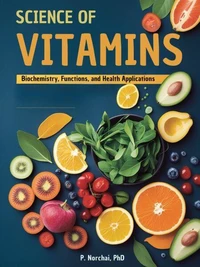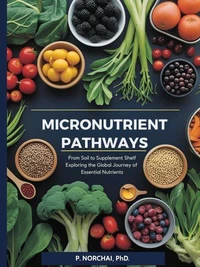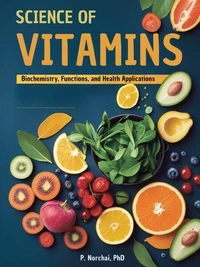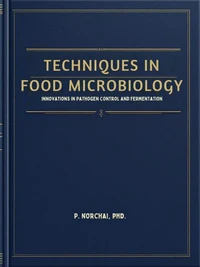SUPPLEMENTS IN THE REAL WORLD: Bridging Science, Society, and Health Policy
Par :Formats :
Disponible dans votre compte client Decitre ou Furet du Nord dès validation de votre commande. Le format ePub est :
- Compatible avec une lecture sur My Vivlio (smartphone, tablette, ordinateur)
- Compatible avec une lecture sur liseuses Vivlio
- Pour les liseuses autres que Vivlio, vous devez utiliser le logiciel Adobe Digital Edition. Non compatible avec la lecture sur les liseuses Kindle, Remarkable et Sony
 , qui est-ce ?
, qui est-ce ?Notre partenaire de plateforme de lecture numérique où vous retrouverez l'ensemble de vos ebooks gratuitement
Pour en savoir plus sur nos ebooks, consultez notre aide en ligne ici
- FormatePub
- ISBN8231095957
- EAN9798231095957
- Date de parution15/06/2025
- Protection num.pas de protection
- Infos supplémentairesepub
- ÉditeurWalzone Press
Résumé
In an era of rapid scientific advancement and global health urgency, nutritional supplements remain one of the most misunderstood tools in healthcare. Supplements in the Real World bridges the gap between science, society, and public policy-redefining the role of supplements as essential instruments in promoting population health, not mere wellness commodities. This comprehensive guide explores how supplements can help address critical global challenges such as micronutrient deficiencies, food system limitations, and health inequities.
It provides a multidisciplinary perspective grounded in nutrition science, food technology, epidemiology, and public health policy. From maternal and child health programs to emergency nutrition interventions and mass supplementation campaigns, the book presents evidence-based strategies to improve health outcomes across diverse populations. It challenges outdated assumptions and promotes a pragmatic, scientifically sound approach to supplementation at the individual and societal level.
Key topics include: Bioavailability, nutrient stability, and the science of absorption The double burden of malnutrition and hidden hunger Fortification vs. supplementation: policy and practice Supplements in humanitarian and crisis settings Regulation, safety, and global oversight standards School-based nutrition programs and prenatal care models The ethics of supplementation in vulnerable communities Misinformation, marketing, and public trust challenges With a focus on real-world application, the book offers practical frameworks for designing, evaluating, and implementing supplement strategies that are scalable, culturally appropriate, and scientifically validated.
Ideal for readers in public health, nutrition, food science, and policy-this book provides the insight and tools needed to: Understand the physiological necessity of key micronutrients Evaluate the effectiveness of supplementation programs Design sustainable, equitable nutrition interventions Navigate international regulatory environments Communicate science clearly and ethically to the public Supplements are not a panacea-but they are not optional.
As the world faces evolving nutritional needs, this book argues for the integration of supplementation into public health planning with clarity, responsibility, and scientific integrity. Whether working in government, academia, healthcare, food manufacturing, or global NGOs, readers will gain a clear understanding of how supplements can-and should-function as part of a modern health strategy that values both precision and equity.
It provides a multidisciplinary perspective grounded in nutrition science, food technology, epidemiology, and public health policy. From maternal and child health programs to emergency nutrition interventions and mass supplementation campaigns, the book presents evidence-based strategies to improve health outcomes across diverse populations. It challenges outdated assumptions and promotes a pragmatic, scientifically sound approach to supplementation at the individual and societal level.
Key topics include: Bioavailability, nutrient stability, and the science of absorption The double burden of malnutrition and hidden hunger Fortification vs. supplementation: policy and practice Supplements in humanitarian and crisis settings Regulation, safety, and global oversight standards School-based nutrition programs and prenatal care models The ethics of supplementation in vulnerable communities Misinformation, marketing, and public trust challenges With a focus on real-world application, the book offers practical frameworks for designing, evaluating, and implementing supplement strategies that are scalable, culturally appropriate, and scientifically validated.
Ideal for readers in public health, nutrition, food science, and policy-this book provides the insight and tools needed to: Understand the physiological necessity of key micronutrients Evaluate the effectiveness of supplementation programs Design sustainable, equitable nutrition interventions Navigate international regulatory environments Communicate science clearly and ethically to the public Supplements are not a panacea-but they are not optional.
As the world faces evolving nutritional needs, this book argues for the integration of supplementation into public health planning with clarity, responsibility, and scientific integrity. Whether working in government, academia, healthcare, food manufacturing, or global NGOs, readers will gain a clear understanding of how supplements can-and should-function as part of a modern health strategy that values both precision and equity.
In an era of rapid scientific advancement and global health urgency, nutritional supplements remain one of the most misunderstood tools in healthcare. Supplements in the Real World bridges the gap between science, society, and public policy-redefining the role of supplements as essential instruments in promoting population health, not mere wellness commodities. This comprehensive guide explores how supplements can help address critical global challenges such as micronutrient deficiencies, food system limitations, and health inequities.
It provides a multidisciplinary perspective grounded in nutrition science, food technology, epidemiology, and public health policy. From maternal and child health programs to emergency nutrition interventions and mass supplementation campaigns, the book presents evidence-based strategies to improve health outcomes across diverse populations. It challenges outdated assumptions and promotes a pragmatic, scientifically sound approach to supplementation at the individual and societal level.
Key topics include: Bioavailability, nutrient stability, and the science of absorption The double burden of malnutrition and hidden hunger Fortification vs. supplementation: policy and practice Supplements in humanitarian and crisis settings Regulation, safety, and global oversight standards School-based nutrition programs and prenatal care models The ethics of supplementation in vulnerable communities Misinformation, marketing, and public trust challenges With a focus on real-world application, the book offers practical frameworks for designing, evaluating, and implementing supplement strategies that are scalable, culturally appropriate, and scientifically validated.
Ideal for readers in public health, nutrition, food science, and policy-this book provides the insight and tools needed to: Understand the physiological necessity of key micronutrients Evaluate the effectiveness of supplementation programs Design sustainable, equitable nutrition interventions Navigate international regulatory environments Communicate science clearly and ethically to the public Supplements are not a panacea-but they are not optional.
As the world faces evolving nutritional needs, this book argues for the integration of supplementation into public health planning with clarity, responsibility, and scientific integrity. Whether working in government, academia, healthcare, food manufacturing, or global NGOs, readers will gain a clear understanding of how supplements can-and should-function as part of a modern health strategy that values both precision and equity.
It provides a multidisciplinary perspective grounded in nutrition science, food technology, epidemiology, and public health policy. From maternal and child health programs to emergency nutrition interventions and mass supplementation campaigns, the book presents evidence-based strategies to improve health outcomes across diverse populations. It challenges outdated assumptions and promotes a pragmatic, scientifically sound approach to supplementation at the individual and societal level.
Key topics include: Bioavailability, nutrient stability, and the science of absorption The double burden of malnutrition and hidden hunger Fortification vs. supplementation: policy and practice Supplements in humanitarian and crisis settings Regulation, safety, and global oversight standards School-based nutrition programs and prenatal care models The ethics of supplementation in vulnerable communities Misinformation, marketing, and public trust challenges With a focus on real-world application, the book offers practical frameworks for designing, evaluating, and implementing supplement strategies that are scalable, culturally appropriate, and scientifically validated.
Ideal for readers in public health, nutrition, food science, and policy-this book provides the insight and tools needed to: Understand the physiological necessity of key micronutrients Evaluate the effectiveness of supplementation programs Design sustainable, equitable nutrition interventions Navigate international regulatory environments Communicate science clearly and ethically to the public Supplements are not a panacea-but they are not optional.
As the world faces evolving nutritional needs, this book argues for the integration of supplementation into public health planning with clarity, responsibility, and scientific integrity. Whether working in government, academia, healthcare, food manufacturing, or global NGOs, readers will gain a clear understanding of how supplements can-and should-function as part of a modern health strategy that values both precision and equity.

















